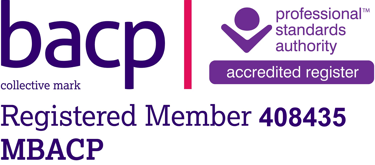
Therapy for ADHD
Explore your experiences and discover new ways of living with greater clarity and self-understanding
ADHD is sometimes called Hyper-Kinetic Cognition. This speaks to what it can be like tolive with ADHD. You may notice energy, creativity and an ability to focus that sometimes feels like a superpower. Yet this sits alongside difficulties with focus on other tasks, disorganisation or restlessness. ADHD might feel like it shapes your days in ways that are hard to manage, leaving you frustrated or overwhelmed.
Therapy offers a space to pause and explore how ADHD shows up in your life. With a therapist, you can reflect on your experiences of ADHD without judgement, and begin to notice patterns, strengths and challenges with more compassion. Many people find that simply being heard and understood in this way can bring a sense of relief and possibility.
What is Therapy when you have ADHD?
Therapy for people with ADHD is not about trying to change who you are. It is about making space to understand your experiences more deeply, and to explore new ways of relating to yourself and the world.
As a therapist, I work integratively with my ADHD clients, drawing on different therapeutic traditions to meet your needs. Therapy may involve reflecting on your relationships, your patterns of attention, and the impact ADHD has on your daily life. Together, we can explore strategies for managing challenges while also valuing the unique perspectives and creativity you bring.
Signs You Might Benefit from Therapy
You might consider working with an ADHD therapist if you notice that:
Concentration and focus feel difficult to sustain
Organisation, planning or timekeeping create ongoing stress
Restlessness, impulsivity or frustration feel overwhelming
Relationships are affected by misunderstandings or tension
You experience self-criticism, shame or low self-esteem linked to ADHD
You want a space to explore your strengths as well as your challenges
Therapy is not only for times of crisis. Many people find it helpful as an ongoing space to understand themselves more fully, and to reflect on how ADHD interacts with different parts of their life.
How Therapy Works when you have ADHD
Therapy usually begins with an introductory session, where we can talk about what has brought you here and what you hope to explore. You can share as much or as little as feels right, and ask me any questions about my approach to working with ADHD..
From there, sessions are shaped by your pace and your priorities. We might look at how ADHD shows up in your work, relationships or daily routines, and explore the feelings that come with it. I often draw from different therapeutic traditions, blending practical tools with reflective space.
The process is collaborative. Together, we can notice patterns, develop strategies that may help, and create a safe space for curiosity, compassion and self-discovery.
My Expertise and Approach
I trained at the Minster Centre, one of the UK’s leading psychotherapy trainings, with an integrative approach that borrows from different traditions. This allows me to adapt therapy to your unique needs, rather than relying on a fixed method.
I have worked with people living with ADHD alongside anxiety, depression, stress, grief and burnout. I also have experience supporting activists, members of the LGBT+ community, and others facing diverse pressures.
Many of my clients experience therapy as a place where they can finally pause, feel heard, and reflect on their lives without judgement. My aim as an ADHD therapist is to offer that safe, supportive space here with you.
The Benefits of Therapy for ADHD
Many clients describe therapy with an ADHD therapist as an opportunity to:
Understand more about how ADHD affects their daily life
Notice patterns of thought and behaviour with greater clarity
Explore ways of managing distraction, restlessness or overwhelm
Reflect on relationships and how ADHD plays a part in them
Reconnect with a sense of self-acceptance and possibility
Therapy is rarely a quick fix. It can be a gradual process of unfolding, where insights and small changes build over time. You may find that this process helps you relate to yourself with more curiosity and compassion.
Why Contact Me?
✓ Trained at the Minster Centre, one of the UK’s leading psychotherapy institutions
✓ Experienced in supporting people with anxiety, depression, grief, stress and burnout
✓ Over two years working in a bereavement service, alongside specialist work
✓ An integrative therapist, drawing from different traditions to tailor therapy to each person
✓ A background in working with activists, changemakers, leaders and ex-boarders
✓ Committed to creating a safe, empathic and collaborative therapeutic space


Start Your Therapy Journey Today
If you'd like an introductory session, please email me or message me using the details below or the contact form.
Phone
Location
231 Shoreditch High Street, E1 6PJ or Online
FAQs About Therapy for ADHD
What happens in the first session?
The first session is a chance for us to meet and talk about what has brought you here. You can share your experiences with ADHD, ask me any questions about my approach, and get a feel for how I work with ADHD. There is no obligation to continue - it is about seeing whether therapy feels right for you.
Do I need a formal ADHD diagnosis to start therapy?
No. Some clients have a formal diagnosis, while others simply recognise patterns in themselves that feel consistent with ADHD. Therapy does not require a diagnosis. It is a space to explore whatever you are experiencing, in your own words and at your own pace.
How many sessions will I need?
There is no fixed number. Some people find a short series of sessions helpful, while others prefer longer-term therapy. We can check in regularly to see how the process feels and whether you would like to continue.
How can therapy help with ADHD?
Therapy does not change ADHD itself, but many people find it useful in making sense of their experiences. Therapy can provide space to reflect on patterns, develop strategies for daily challenges, and explore the emotional impact of living with ADHD.
Do you only work with people with ADHD?
No. Some of my clients have ADHD, some do not. I also support people experiencing anxiety, depression, grief, stress, burnout and other concerns. Therapy is open to anyone who wants to reflect on their life and relationships.
Is what I share kept confidential?
Yes. What you say in therapy is confidential as this helps create the safe space needed for honest exploration. I’m happy to talk more about this in sessions.


Qualified therapist based in Hackney, London
Online Therapy
© 2025 Andrew Tobert Therapy | Terms & Conditions | Privacy Policy